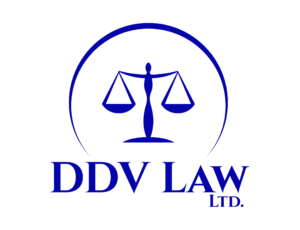As we get older, we may find ourselves taking care of our loved ones who used to take care of us. Our parents may revert to the role of adolescent; hiding delinquent bills and health information from us. We may be unaware of the truth until a friend or neighbor mentions that something is off, whether it’s a growing pile of mail and number of weeds, or strangers popping by for frequent visits and leaving with a pep in their step.
So, you decide to step-in and help! Hopefully your loved one has an up-to-date estate plan, with signed powers of attorney. However, even with a valid power of attorney, there are times when you will need to petition for guardianship. Here are four signs that your loved one may need a guardian:
- Revocation of a Power of Attorney
Even if you have been acting as your loved one’s agent under a power of attorney they signed many years ago, when they were healthy and taking on the world, it can be revoked at any time. Further, you may have a feeling that your loved one would sign anything put in front of them, whether it be a check, a deed, or another power of attorney naming a crook as their agent. Bottom line: if you feel that your loved one is easily talked into just about anything, then you need to speak with an attorney to discuss your next steps. - Real Property or Investments Have to be Sold
You may be helping your loved one with long-term care planning and need to sell a house or purchase an annuity. Not every power of attorney will allow for these type of transactions, and should be examined prior to any sale or transfer to determine if guardianship is required. - Medical Disagreements and Intervention Beyond a Power of Attorney
There may be certain instanced where you will need a guardianship to protect your loved one’s health. For instance, it may be time to admit your loved one to a nursing home, and they are absolutely refusing to go; you may have to authorize a medical care provider to administer certain drugs such as antipsychotics; or your loved one just does not have the ability to comprehend a treatment in order to consent to it. - Compromised Decision Making, but Only in Some Areas
Courts are increasingly aware that individuals may need help in one area of their lives, but can retain control over other areas. In these instances, the court will allow or a limited guardianship, rather than taking away complete control from an individual. For example, if your loved one can still decide who their want to run the family business, the court may allow them to make that decision, while giving you authority over all other assets.
Filing for guardianship can be costly and time consuming. Feuding siblings can often drive-up costs and lengthen the process. Guardianship can often be avoided by implementing an effective estate plan. While your loved one still has capacity have him or her, talk to their attorney and consider creating a revocable trust where assets can be transferred now. Your loved one can be a trustee with a co-trustee named to serve as well. That way, the co-trustee can act if or when your loved one no longer can or wants to.
Make sure your love one’s power of attorney documents are up to date. Unfortunately, even with an estate plan, there are times when a guardianship cannot be avoided. Knowing what those times are will make you more prepared to deal with them.
If you feel that your loved one needs a guardian, or you would like to discuss executing an estate plan to avoid guardianship in the future, contact one of our experienced elder law attorneys today at (312)878-0155 or click here to request a consultation.

